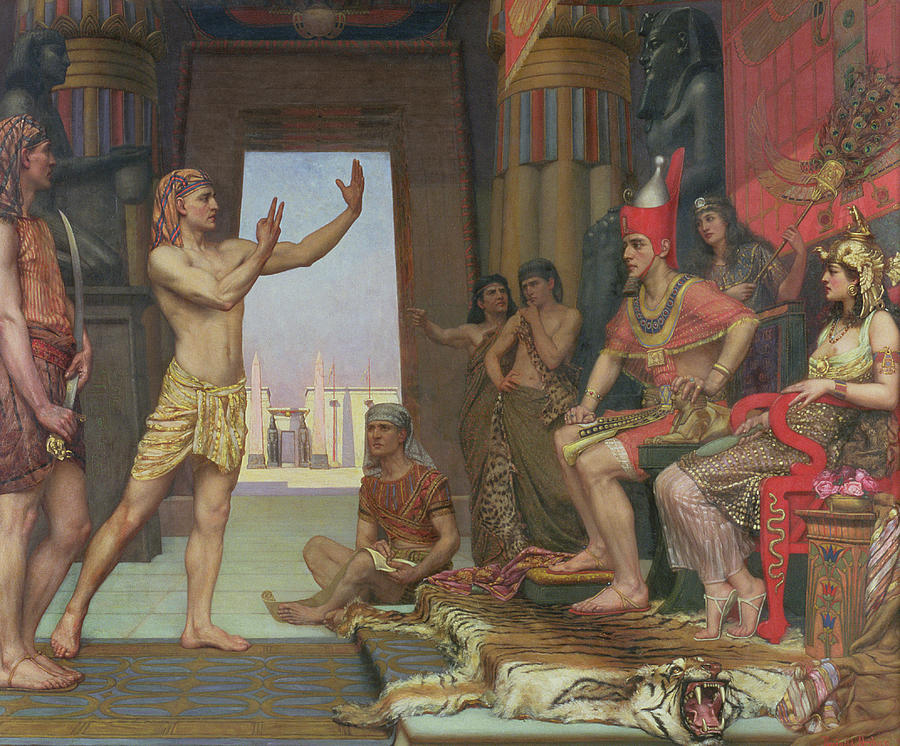
by Phyllis Chesler
We always read parasha Miketz during Hanukkah and at the darkest time of year. Why? Yosef has been thrown down into darkness many times, but with God’s help both Yosef and Yehuda Ha’Maccabee ultimately rise and triumph over incredible odds. Yosef endures, enlightens Pharaoh, and saves everyone from famine; the Maccabim drive the enemies out and light miraculous candles in the Temple. Through their Judaism, both Yosef and the Maccabim are a light unto their people and a “light unto the nations.”
The parasha raises many questions that I cannot answer, at least not without many months—perhaps years—of study. For example: Is Yosef a prophet? God never speaks to him, and Yosef never speaks to God. He is no Avraham or Ya’akov, certainly no Shmuel, Yeshayahu, or Yirmiyahu. Thus, how did the arrogant adolescent become so humble, so aware of God’s presence and power? Yosef gives God all the credit for Yosef’s own ability to interpret dreams. How did Yosef, serving in a pagan household and imprisoned in a dungeon together with pagans, manage to maintain his religion for thirteen years? They say that everyone finds God in prison. Does this include Yosef? Did he lose God when his brothers sold him into slavery? Or when he was imprisoned due to Mrs. Potiphar’s false accusation? Or forgotten for years after correctly interpreting the dreams of Pharaoh’s cup-bearer and baker?
Yosef’s own dreams of long ago have all come to pass—they were certainly prophecies, but Yosef did not understand them as such. In Miketz, his brothers prostrate themselves before him at least four times: (42:6; 43:26; 43:28; 44:14). Does having dreams that become realized mean that Yosef is a prophet?
Another question. Why did Pharaoh believe Yosef’s dream interpretation? Who is the God that Pharaoh recognizes as Yosef’s? Why does Egypt’s ruler trust this God, our God, who must be new to him?
This parasha frustrated me, it yielded more questions than answers.
And then, I noticed a small but potentially significant or at least familiar phrase. (One lives for such moments! This is one way that God talks to us). When Ya’akov finally agrees to send Binyamin down to Egypt, he says: “If I have been bereft of my children I will be bereft.”(43:14). In Hebrew: “V’ani caasher sh’cholti sh’cholti.” He prefigures Esther when she says: “and as I am bereft (lost), so I must be further bereft (lost).” (4:16). In Hebrew: “v’casher avaditi avaditi.”
According to Rashi, Ya’akov’s first “sh’cholti refers to the loss of Yosef and Shimon, and the second “sh’cholti” refers to the loss of Binyamin. In Esther’s case, if speaking to the King as a Jew leads to her own death, and to the genocide of her people, so be it – she will still do whatever she can to prevent this from happening. Given what’s at stake and despite the enormous risk, both Ya’akov and Esther surrender to God’s will.
May we all be as privileged to do likewise.
Chag Hanukkah Sameach and Shabbat Shalom.
- Like
- Digg
- Del
- Tumblr
- VKontakte
- Buffer
- Love This
- Odnoklassniki
- Meneame
- Blogger
- Amazon
- Yahoo Mail
- Gmail
- AOL
- Newsvine
- HackerNews
- Evernote
- MySpace
- Mail.ru
- Viadeo
- Line
- Comments
- Yummly
- SMS
- Viber
- Telegram
- Subscribe
- Skype
- Facebook Messenger
- Kakao
- LiveJournal
- Yammer
- Edgar
- Fintel
- Mix
- Instapaper
- Copy Link










One Response
May we have the wisdom to do just that, surrender to G-d’s will🙏🏻✡️🕎